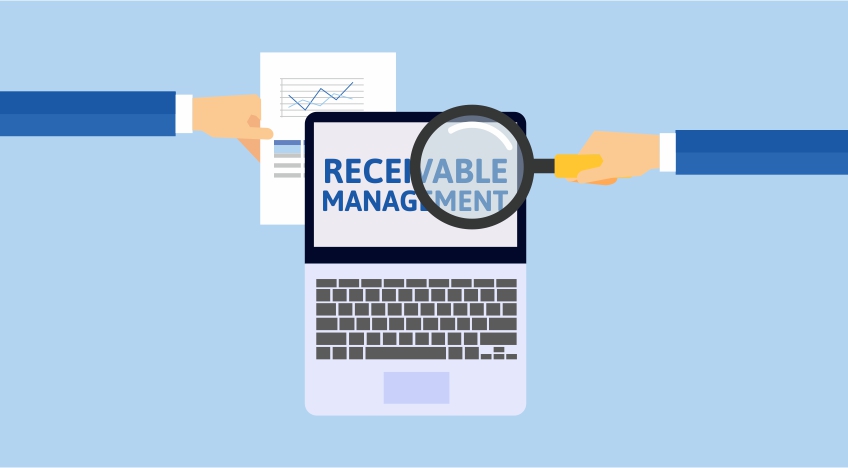In today’s competitive business landscape, effective receivable management services have become crucial for organizations striving to maintain healthy cash flow and reduce outstanding debts. This article will delve into the various aspects of receivable management, its significance, and how businesses can benefit from professional services in this area.
Understanding Receivable Management
Receivable management refers to the process of tracking and managing a company’s accounts receivable (AR), which represents the money owed to the business by its customers. This involves overseeing invoices, payment terms, and follow-ups to ensure timely payments. In essence, receivable management services encompass the entire cycle of billing and collections, aiming to optimize the cash flow of a business.
Why Receivable Management Services Matter
1. Improved Cash Flow
One of the primary benefits of utilizing receivable management services is improved cash flow. When a company effectively manages its accounts receivable, it can significantly reduce the time it takes to collect payments. As a result, businesses can ensure they have enough cash on hand to cover operational expenses, invest in growth opportunities, and handle unexpected costs. For instance, a company with a streamlined receivable management process can maintain a healthy cash reserve, thus minimizing the risk of financial strain.
2. Reduced Days Sales Outstanding (DSO)
Days Sales Outstanding (DSO) is a key metric that measures the average number of days it takes for a company to collect payment after a sale has been made. High DSO indicates that a business is facing challenges in collecting payments, which can impact cash flow. By employing specialized receivable management services, organizations can effectively lower their DSO by implementing efficient invoicing practices and proactive follow-ups. This not only enhances cash flow but also improves financial reporting accuracy.
3. Minimized Bad Debts
Bad debts occur when customers fail to pay their outstanding invoices, leading to financial losses for the business. Receivable management services help mitigate this risk by establishing robust credit assessment processes and monitoring customer payment behaviors. By identifying potentially risky customers early on, businesses can take appropriate measures, such as adjusting credit limits or implementing more stringent payment terms. This proactive approach can significantly reduce the incidence of bad debts, safeguarding the company’s financial health.
4. Enhanced Customer Relationships
Effective receivable management services contribute to better customer relationships. By maintaining open lines of communication and providing clear payment terms, businesses can foster trust and reliability with their customers. Additionally, timely follow-ups and reminders can help customers feel valued and respected, enhancing their overall experience. A positive customer relationship can lead to repeat business and referrals, ultimately contributing to the company’s growth and sustainability.
5. Time and Resource Efficiency
Managing accounts receivable can be a time-consuming process that diverts valuable resources away from core business functions. By outsourcing receivable management services, businesses can free up internal resources to focus on more strategic initiatives. Professional service providers possess the expertise and tools necessary to efficiently manage receivables, allowing companies to concentrate on activities that drive growth and profitability. This delegation not only improves operational efficiency but also ensures that accounts receivable processes are handled by experts.
Key Components of Effective Receivable Management Services
To achieve optimal results, receivable management services should encompass several key components:
1. Comprehensive Credit Assessments
Conducting thorough credit assessments before extending credit to customers is essential. This includes evaluating the customer’s credit history, financial stability, and payment behavior. By implementing a comprehensive credit assessment process, businesses can minimize the risk of extending credit to unreliable customers.
2. Clear Invoicing Practices
Sending clear, accurate, and timely invoices is vital for effective receivable management. This includes ensuring that invoices are correctly addressed, contain all necessary details, and are dispatched promptly. Automated invoicing systems can streamline this process, reducing the likelihood of errors and delays.
3. Proactive Follow-Up Procedures
Regular follow-ups are essential for reminding customers about outstanding payments. Implementing a systematic follow-up schedule ensures that no payment is overlooked. Additionally, offering flexible payment options can encourage prompt payments and improve customer satisfaction.
4. Advanced Technology Utilization
Leveraging technology can significantly enhance the effectiveness of receivable management services. Using software solutions that provide real-time tracking of accounts receivable, automated reminders, and comprehensive reporting can improve efficiency and transparency. These tools can also facilitate better communication with customers, making it easier to manage accounts effectively.
5. Performance Analysis and Reporting
Regular analysis of accounts receivable performance is critical for identifying trends and areas for improvement. By tracking metrics such as DSO and bad debt rates, businesses can make informed decisions to enhance their receivable management strategies. Additionally, providing detailed reports to management can support strategic planning and resource allocation.
Choosing the Right Receivable Management Services
When selecting a provider for receivable management services, businesses should consider the following factors:
1. Experience and Expertise
Look for providers with a proven track record in receivable management. Their experience can significantly impact the quality and effectiveness of the services provided.
2. Technology Integration
Ensure that the provider utilizes advanced technology for efficient receivable management. This includes software that can automate processes, track performance, and enhance communication.
3. Customizable Solutions
Each business has unique needs, so it is essential to choose a provider that offers customizable solutions tailored to your specific requirements. This flexibility can lead to more effective receivable management.
4. Client Support and Communication
Strong client support and communication are vital for a successful partnership. Choose a provider that prioritizes open communication and is responsive to your needs.
Conclusion
In conclusion, effective receivable management services are essential for businesses aiming to optimize cash flow, reduce bad debts, and enhance customer relationships. By investing in professional receivable management, companies can streamline their processes, improve efficiency, and ultimately drive growth. With the right strategies and expertise, businesses can successfully navigate the complexities of accounts receivable and position themselves for long-term success.
Utilizing receivable management services improves financial performance and contributes to a more robust business operation. As companies face increasing competition and economic challenges, ensuring effective management of accounts receivable is more important than ever. By prioritizing these services, businesses can secure their financial future and thrive in today’s dynamic marketplace.




